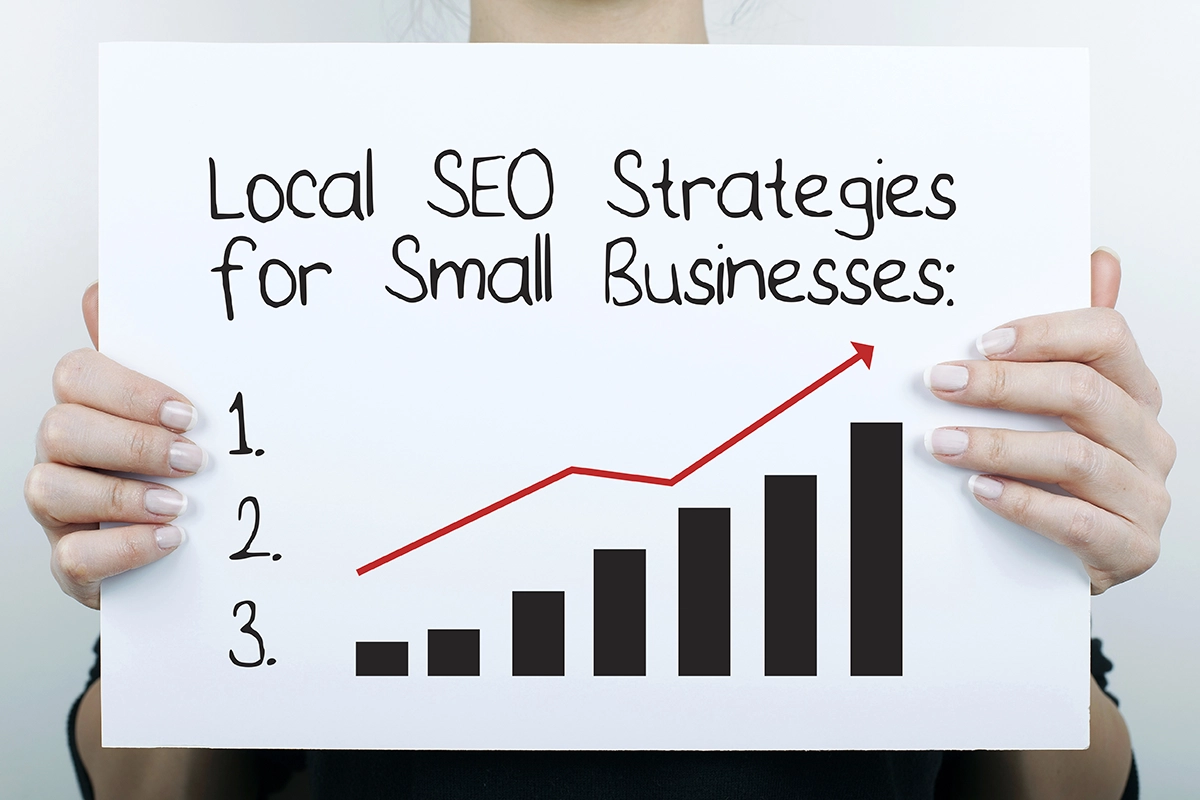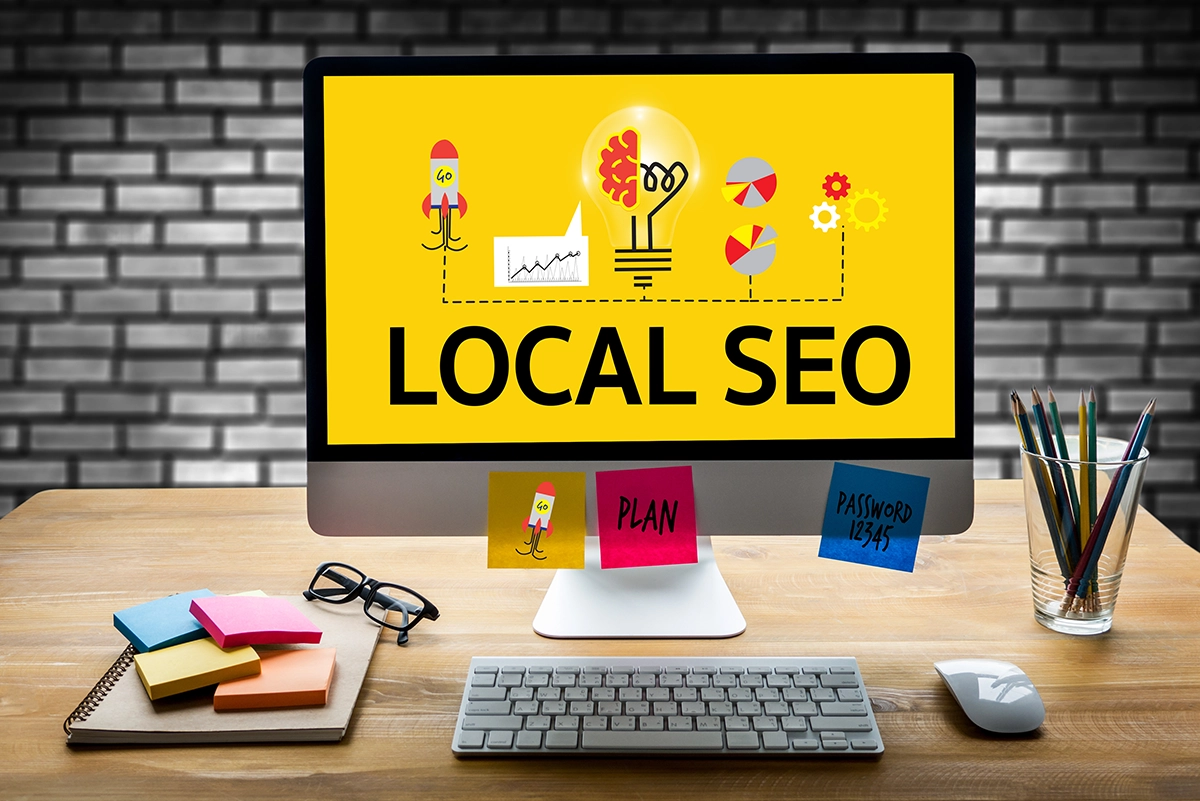A strong online presence is crucial for businesses of all sizes. Search Engine Optimisation (SEO) is a powerful tool to achieve this, driving organic traffic to your website and increasing brand awareness. But for businesses with a local focus, a more targeted approach is necessary. This is where Local Search Engine Optimisation comes in. While both SEO and Local SEO share the goal of improving search rankings, they cater to distinct audiences and employ specific strategies. Let’s delve into the world of SEO and Local Search Engine Optimisation, uncovering their differences and how they can benefit your business.
The Big Picture: Understanding SEO
SEO is the comprehensive practice of optimising a website for search engines like Google. Its primary objective is to enhance a website’s ranking for relevant keywords, ultimately leading to increased organic traffic. Here’s a breakdown of SEO’s core principles:
- On-page Optimisation: This involves optimising the content and structure of your website to make it search engine friendly. This includes incorporating relevant keywords throughout your website’s content, meta descriptions, and title tags. Additionally, ensuring a fast loading speed and mobile-friendliness are crucial factors.
- Off-page Optimisation: This focuses on building your website’s authority and credibility in the eyes of search engines. It involves acquiring backlinks from high-quality websites in your niche. Backlinks act like votes of confidence for your site, influencing search engine ranking algorithms.
- Technical SEO: This ensures the technical aspects of your website are functioning optimally for search engines. This includes having a clean website structure, a well-defined robots.txt file, and a secure connection (HTTPS).
By implementing these strategies effectively, SEO helps your website rank higher in search results for relevant keywords. This improved visibility translates to increased organic traffic, brand awareness, and ultimately, potential customers.
Zooming In: The Power of Local Search Engine Optimisation
Local SEO is a specialised branch of SEO that caters to businesses with a physical location or serving a specific geographic area. Its primary goal is to improve search visibility within local search results. When someone searches for a product or service with a local intent, like “best pizza near me” or “plumber in Hertfordshire,” local SEO helps your business appear at the top of those local search results.
Here’s what sets Local SEO apart from traditional SEO:
- Target Audience: Local SEO concentrates on attracting customers within a specific geographic region. This could be a city, town, or even a specific neighbourhood.
- Keyword Research: Local SEO focuses on keywords with local intent. These keywords typically include location qualifiers like city names, zip codes, or phrases like “near me.” For instance, instead of targeting just “pizza,” a local pizzeria would target “best pizza in Hertford.”
- Local Listings and Citations: Claiming and optimising your Google My Business listing is crucial for local SEO. Additionally, ensuring your business information (name, address, phone number) is consistent across various online directories and citation websites significantly impacts your local search rankings.
- Online Reviews and Customer Engagement: Positive online reviews on platforms like Google My Business and Yelp significantly influence local search rankings. Encouraging satisfied customers to leave reviews and actively responding to both positive and negative reviews demonstrates customer focus and builds trust.
By implementing these Local Search Engine Optimisation strategies, your business becomes more discoverable by potential customers searching for your offerings within your local area. This targeted approach allows you to connect with customers actively looking for what you provide, leading to increased foot traffic or local sales.

Finding the Right Fit: SEO vs. Local SEO
The choice between SEO and Local SEO depends on your business’s target audience and reach. Here’s a quick guide to help you decide:
- Choose SEO if:
- Your business operates nationally or internationally.
- Your target audience isn’t geographically restricted.
- You offer products or services that can be delivered or accessed online.
- Choose Local SEO if:
- Your business has a physical location and serves a specific geographic area.
- Local customers are your primary target audience.
- Increasing foot traffic or local sales is your primary goal.
The Synergy of SEO and Local Search Engine Optimisation
While SEO and Local Search Engine Optimisation have distinct focuses, they can work together to amplify your online presence. Here’s how:
- On-page Optimisation: Optimising your website content with relevant keywords, including both general and local keywords, benefits both SEO and Local SEO.
- Building Website Authority: Earning backlinks from high-quality websites helps with overall SEO and indirectly improves your local search rankings as well.
- Mobile-friendliness: A mobile-friendly website is essential for both SEO and Local SEO, as a significant portion of local searches happen on mobile devices.
Taking Action: Getting Started with SEO and Local Search Engine Optimisation
Here are some practical steps you can take to implement SEO and Local Search Engine Optimisation for your business:
SEO:
- Keyword Research: Conduct thorough keyword research to identify relevant keywords with high search volume and low competition. Tools like Google Keyword Planner and SEMrush can be helpful in this process.
- Content Creation: Develop high-quality, informative content that targets your chosen keywords. This could include blog posts, product descriptions, or informative landing pages.
- Website Optimisation: Optimise your website’s content (including meta descriptions and title tags) with your target keywords. Ensure your website loads quickly and is mobile-friendly.
- Backlink Building: Develop a strategy to acquire backlinks from reputable websites within your niche. Consider guest blogging, creating link-worthy content, or directory submissions.
Local Search Engine Optimisation:
- Claim and Optimise Your Google My Business Listing: Claim your Google My Business listing and ensure all your business information (name, address, phone number) is accurate and consistent. Add high-quality photos, business descriptions, and respond to customer reviews.
- Local Citations: List your business in relevant online directories and citation websites. Ensure your NAP (Name, Address, Phone number) is consistent across all platforms.
- Online Reviews: Encourage satisfied customers to leave positive reviews on Google My Business, Yelp, and other relevant platforms. Respond to both positive and negative reviews promptly and professionally.
- Engage with the Local Community: Build relationships with other local businesses and participate in community events. Promote your local involvement through your website and social media channels.
Beyond the Basics
SEO and Local Search Engine Optimisation are dynamic fields with ever-evolving best practices. Staying updated with the latest trends and algorithm changes is crucial for maintaining a strong online presence. Consider utilising SEO and Local Search Engine Optimisation tools, attending industry webinars, or consulting with an SEO professional for further guidance.
Conclusion
By understanding the distinct roles of SEO and Local Search Engine Optimisation, and implementing the relevant strategies, you can significantly enhance your online visibility and attract more customers. Remember, SEO is a long-term strategy, so consistency and patience are key. As you refine your approach and track your results, you’ll be well on your way to achieving top search rankings and driving success for your business.
For more information on Local SEO contact Click Return.


